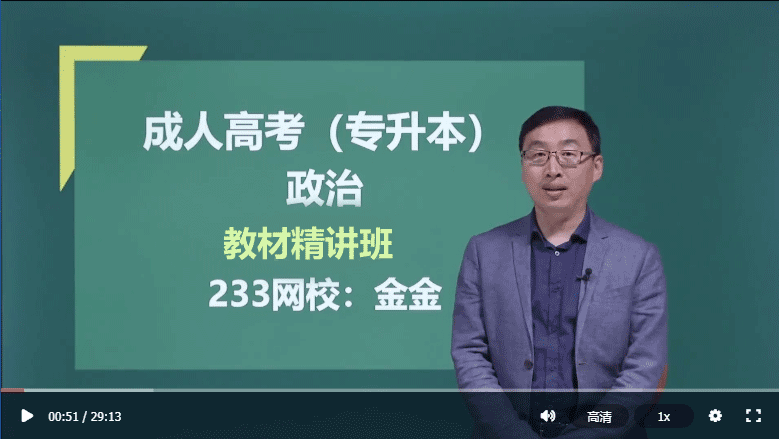2006хЙДцфККщЋшфИхцЌшБшЏцЈЁцшЏщЂ
уу16._____яМ Mr. Brown saw the washing machine which had been repaired go wrong again.
ууA. To his surprise B. It was surprised
ууC. Surprising D. LosingяМ bought.
уу17.ттWhat made her so upsetяМ
уутт____ _the necklace______ yesterday.
ууA. LostяМ bought B. LostяМ buying
ууC. LosingяМ having bought D. LosingяМ bought
уу18.The three children looked after their sick mother__________.
ууA. in return B. by turn
ууC. in turn D. being done
уу19.Tom went out to play with his homework__________.
ууA. done B. to do C. doing D. being done
уу20. Not until_________ the whole thing to him______ that he was wrong.
ууA. had I explainedяМ he realized B. had I explainedяМ that he realized
ууC. I had explainedяМ that he realized D. I had explainedяМ did he realize
уут ЂуCloze яМ 20 points яМ
ууDirectionsяМ
ууFor each blank in the following PassageяМ there are for choices marked AяМBяМ C and D. Choose the one that is suitable and mark your answer by blackening the corresponding letter on answer sheet I.
ууMost children with healthy appetites are ready to eat almost anything that is offered them and a child rarely dislikes food 21 it is badly cooked.
ууThe way a meal is cooked and served is most important and an 22 served meal will improve a child's appetite. Never ask a child 23 he likes or dislikes a food and never discuss likes and dislikes in front of him or allow 24 else to do so. If the father says he hates fat meat or the mother refuses vegetables in the child's hearing he is 25 to copy this procedure. Take it 26 Granted that he likes everything and he probably will. Nothing healthful should be omitted for the meal because of a supposed dislike. At meal times it is a good idea to give a child a small portion and let him come back for a second helping rather than give him as 27 as he is likely to eat all at once. Do not talk too much to the child 28 meal timesяМ but let him get on with his foodяМ and do not allow him to leave the table immediately after a meal or he will soon learn to swallow his food so he can hurry back to his toys. Under 29 circumstances must a child be coaxed 30 forced to eat.
уу21.A. if B. until C. that D. unless
уу22.A. adequately B. urgently C. eagerly D. attractively
уу23.A. whether B. that C. What D. which
уу24.A. somebody B. everybody C. anybody D. nobody
уу25.A. willing B. possible C. possible D. likely
уу26.A. with B. as C. over D. for
уу27.A. little B. few C. much D. many
уу28. A. no B. during C. over D. by
уу29.A.no B. some C. any D. such
уу30.A.nor B. but C. neither D. or
уут Ѓ Reading Comprehension яМ 75 points яМ
ууDirectionяМ
ууThere are five reading passages his part. Each passage is followed by five questions. for each question there are for suggested answer marked AяМ BяМ C and B яМ choose the best answer and blacken the corresponding letter on Answer sheet 1 .
ууPassage one
ууValencia is in the east part of Spain. It has a port on the seaяМ two miles away from the coast. It is the capital of a province that is also named Valencia.
ууThe city is a market centre for what is produced by the land around the city. Most of the city's money is made from farming. It is also a busy business cityяМ with shipsяМ railways clothes and machine factories.
ууValencia has an old part with white buildingsяМ coloured roofsяМ and narrow streets. The modern part has longяМ wide streets and new buildings. Valencia is well known for its parks and gardens. It has many old churches and museums. The University in the centre of the city was built in the 13th century.
ууThe city of valencia has been known since the 2nd century. In the 8th century it was the capital of Spain. There is also an important city in VenzuelaяМхЇх чцяМ named Valencia.
уу31.From the textяМ how many places have the name ValenciaяМ
ууA. One B. Two C. Three D. Four
уу32.What is the main difference between the two parts of the cityяМ
ууA. The colour of the buildings B. The age of the buildings
ууC. The colour of the roof D. The length of the streets.
уу33.When was Valencia the most important city in SpainяМ
ууA.2nd century B.8th century
ууC.13th century D.20th century
уу34.What is Valencia famous forяМ
ууA. Its markets B. Its university
ууC. Its churches and museums D. its parks and gardens
уу35. The main income of the city of Valencia is from its _______.
ууA. markets B. business
ууC. factories D. farming
чИх ГцЈш
- 2017хЙДцфККщЋшфИхцЌшБшЏшшЏцЈЁцшЏщЂхчцЁфК03-22
- 2017хЙДцфККщЋшфИхцЌшБшЏшшЏцЈЁцшЏщЂхчцЁфИ03-22
- 2016хЙДцшфИхцЌшБшЏшххВхКшЏщЂхчцЁцБцЛ10-28
- 2016цшфИхцЌшБшЏхЄшшЏщЂхчцЁ14хЅ08-25
- 2016хЙДцфККщЋшфИхцЌшБшЏцЈЁцшЏщЂхчцЁ6хЅ08-04
| ПЮГЬзЈвЕУћГЦ | НВЪІ | дМл/гХЛнМл | УтЗбЬхбщ | БЈУћ |
|---|---|---|---|---|
| гяЮФ(ИпЦ№Еу)ОЋНВАр | ЕЫО§УФ | ЃЄ150 / ЃЄ150 |  |
БЈУћ |
| гЂгя(ИпЦ№Еу)ОЋНВАр | Monica | ЃЄ150 / ЃЄ150 |  |
БЈУћ |
| Ъ§бЇ(ЮФ)ОЋНВАр | ЭѕЗМ | ЃЄ150 / ЃЄ150 |  |
БЈУћ |
| Ъ§бЇ(Рэ)ОЋНВАр | ТогзжЅ | ЃЄ150 / ЃЄ150 |  |
БЈУћ |
| ДѓбЇгяЮФ(зЈЩ§БО)ОЋНВАр | ХЗбєАиСи | ЃЄ150 / ЃЄ150 |  |
БЈУћ |
| гЂгя(зЈЩ§БО)ОЋНВАр | Monica | ЃЄ150 / ЃЄ150 |  |
БЈУћ |
| ИпЕШЪ§бЇ(вЛ)(зЈЩ§БО)ОЋНВАр | ЭѕЬЮ | ЃЄ150 / ЃЄ150 |  |
БЈУћ |
| ИпЕШЪ§бЇ(Жў)(зЈЩ§БО)ОЋНВАр | ТогзжЅ | ЃЄ150 / ЃЄ150 |  |
БЈУћ |
ИЈЕМПЮГЬ
- ИпЦ№Еу-Ъ§бЇ(ЮФЪЗВЦОРр)

- ЭѕЗМРЯЪІ
 УтЗбЪдЬ§
УтЗбЪдЬ§
- ИпЦ№Еу-гЂгя

- MonicaРЯЪІ
 УтЗбЪдЬ§
УтЗбЪдЬ§
- зЈЩ§БО-ДѓбЇгяЮФ

- ХЗбєАиСиРЯЪІ
 УтЗбЪдЬ§
УтЗбЪдЬ§
АрМЖНщЩм
ЬзВЭАќКЌЃКзЈЩ§БОVIPАр/ИпЦ№ЕуVIPАрЃЈКЌОЋНВ+ецЬтНтЮі+ФЃПМЕуЬт)
ЬзВЭгХЪЦЃК1ЁЂЫјЖЈКЫаФПМЕу
2ЁЂПМЧАЗЂЗХ2ЬзЪдЬт
3ЁЂУтЗбжибЇвЛДЮБЃеЯ
ХфЬзЗўЮёЃК1ЁЂУтЗбЬтПт
2ЁЂПЮГЬНВвх+ПЮМўЯТди+вЦЖЏПЮЬУ







 УтЗбЪдЬ§
УтЗбЪдЬ§ 




